2016 was quite a year for our organization. We’ve welcomed several new team members to YTH and expanded our programming; starting new projects in innovation and design, and traveling around the world to work with youth innovators from Rwanda to El Salvador. We want to share some more details of these year-end highlights to show where we’ve discovered, what we’ve innovated, and how we’ve led.
DISCOVER
TECHsex
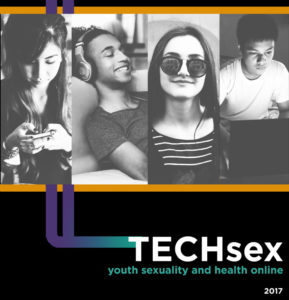 One of our largest projects of 2016 was TECHsex. With support from The David and Lucile Packard Foundation, TECHsex is a national study with data, statistics, stories, and perspectives on the experiences of youth, and how they interact with social media and technology for sexual and reproductive health. In order to continue pioneering this research which began with TECHSexUSA in 2011, we conducted a national survey with nearly 1500 youth and twelve focus groups with youth in six locations all over the United States, and also interviewed key stakeholders in sexual health and rights. The findings from this study will redefine our understanding of the digital landscape of youth sexual and reproductive health. Stay tuned for the final results of this important research, to be released in early 2017! In the meantime, check out YTH’s first review of this data here.
One of our largest projects of 2016 was TECHsex. With support from The David and Lucile Packard Foundation, TECHsex is a national study with data, statistics, stories, and perspectives on the experiences of youth, and how they interact with social media and technology for sexual and reproductive health. In order to continue pioneering this research which began with TECHSexUSA in 2011, we conducted a national survey with nearly 1500 youth and twelve focus groups with youth in six locations all over the United States, and also interviewed key stakeholders in sexual health and rights. The findings from this study will redefine our understanding of the digital landscape of youth sexual and reproductive health. Stay tuned for the final results of this important research, to be released in early 2017! In the meantime, check out YTH’s first review of this data here.
Understanding Cyberbullying
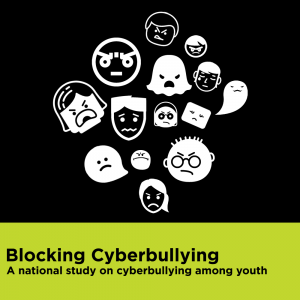 With generous support from Vodafone Americas Foundation, YTH conducted a national study to explore existing trends in cyberbullying among youth to provide information for policy makers, advocates, providers, and funders to make evidence based decisions. In addition, YTH has been leading cohorts of young people in the Bay Area who are coming together to design interventions to combat cyberbullying among middle and high school-aged youth. Utilizing the youth-centered health design process, YTH is working closely with youth to brainstorm and ideate, prototype, and eventually test solutions for the growing problem of cyberbullying. These solutions range from a web-based curriculum for teachers, to a game that parents and their children play to prevent or respond to instances of cyberbullying. To learn more about the findings of the national survey, see our 1-page summary, “Blocking Cyberbullying: Findings from a national study on cyberbullying among youth” and and stay tuned for the full report release.
With generous support from Vodafone Americas Foundation, YTH conducted a national study to explore existing trends in cyberbullying among youth to provide information for policy makers, advocates, providers, and funders to make evidence based decisions. In addition, YTH has been leading cohorts of young people in the Bay Area who are coming together to design interventions to combat cyberbullying among middle and high school-aged youth. Utilizing the youth-centered health design process, YTH is working closely with youth to brainstorm and ideate, prototype, and eventually test solutions for the growing problem of cyberbullying. These solutions range from a web-based curriculum for teachers, to a game that parents and their children play to prevent or respond to instances of cyberbullying. To learn more about the findings of the national survey, see our 1-page summary, “Blocking Cyberbullying: Findings from a national study on cyberbullying among youth” and and stay tuned for the full report release.
INNOVATE
Innovation Next
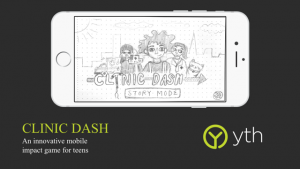 This past year, YTH won the first round of a national innovation challenge, Innovation Next. Tasked with designing an innovative solution to prevent unwanted teen pregnancies in the US, and through an intensive human-centered design process, the YTH team developed a game prototype. Clinic Dash provides youth with knowledge and skills to navigate a reproductive health clinic and build their self-efficacy to increase Long Acting Reversible Contraceptive (LARC) access. YTH is currently exploring partnerships to take the prototype into development and scale.
This past year, YTH won the first round of a national innovation challenge, Innovation Next. Tasked with designing an innovative solution to prevent unwanted teen pregnancies in the US, and through an intensive human-centered design process, the YTH team developed a game prototype. Clinic Dash provides youth with knowledge and skills to navigate a reproductive health clinic and build their self-efficacy to increase Long Acting Reversible Contraceptive (LARC) access. YTH is currently exploring partnerships to take the prototype into development and scale.
Cybergirl
 Rebecca Hope, Co-Founder of YLabs, while attending the 2016 International Family Planning Conference in Bali, submitted a proposal for the Packard Foundation Quality Innovation Challenge. Brainstorming with YTH’s Executive Director Sheoran and jotting ideas on a paper napkin, started a journey of youth engagement and innovation in Rwanda. Several trips to Rwanda later, YLabs and YTH have created digital educational tools to improve access to adolescent sexual and reproductive health and rights (SRHR) information and services for urban adolescents, and support providers to give youth-friendly care. Currently, the team is refining the prototype and seeking funding for a pilot to demonstrate impact- stay tuned for more development with CyberGirl in 2017!
Rebecca Hope, Co-Founder of YLabs, while attending the 2016 International Family Planning Conference in Bali, submitted a proposal for the Packard Foundation Quality Innovation Challenge. Brainstorming with YTH’s Executive Director Sheoran and jotting ideas on a paper napkin, started a journey of youth engagement and innovation in Rwanda. Several trips to Rwanda later, YLabs and YTH have created digital educational tools to improve access to adolescent sexual and reproductive health and rights (SRHR) information and services for urban adolescents, and support providers to give youth-friendly care. Currently, the team is refining the prototype and seeking funding for a pilot to demonstrate impact- stay tuned for more development with CyberGirl in 2017!
AMAZE
One of the most successful projects this year was a collaboration between YTH, Advocates for Youth, and Answer, to create the video series AMAZE. Sex education is often lacking engaging content for young people, and usually misses out on addressing the critical age group of 10-14 year olds, AMAZE is thus designed to make sex ed more fun and less awkward or #moreinfolessweird. Since launching in August, the AMAZE videos have been viewed over 428,000 times and gotten nods of approval from publications like Bustle, Vice, and The New York Times. We release new videos every week, so make sure to subscribe to the AMAZE YouTube channel to see a newly released video every Thursday.
PrEPTECH
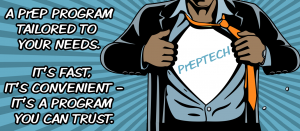 Innovation in HIV prevention and care has been a common-theme in our work at YTH over the years and is at the heart of one of our new projects, PrEPTECH. Funded through generous support from Gilead Sciences, YTH is designing and evaluating an integrated tech approach to increasing pre-exposure prophylaxis (PrEP) uptake among young men who have sex with men (YMSM) of color. Working closely with the community, YTH co-designed the PrEPTECH online web program to support the uptake and adherence of PrEP, while allowing users to bypass many of the barriers related to stigma, discrimination, and access. “PrEPTECH pushes back against a system that has barriers for young gay/bi men to access a prevention mechanism that is still (unfortunately) very stigmatizing,” explains Cara Silva, YTH’s Director of Programs. “It offers a way to help young men learn about PrEP, stay healthy, test, meet with physicians through telemedicine appointments, receive medication at their door, and access tools to take their medication consistently. All online!” PrEPTECH participants themselves enjoy the ease that this service provides them: “Between work and school, I didn’t have time to worry about missing a pill or finding a new doctor. PrEPTECH took care of this for me!” study participant Nick says about his experience. “PrEPTECH helped me find where to get tested AND sent PrEP right to my door-doesn’t get much easier than that.” Andrew, another study participant, explains.
Innovation in HIV prevention and care has been a common-theme in our work at YTH over the years and is at the heart of one of our new projects, PrEPTECH. Funded through generous support from Gilead Sciences, YTH is designing and evaluating an integrated tech approach to increasing pre-exposure prophylaxis (PrEP) uptake among young men who have sex with men (YMSM) of color. Working closely with the community, YTH co-designed the PrEPTECH online web program to support the uptake and adherence of PrEP, while allowing users to bypass many of the barriers related to stigma, discrimination, and access. “PrEPTECH pushes back against a system that has barriers for young gay/bi men to access a prevention mechanism that is still (unfortunately) very stigmatizing,” explains Cara Silva, YTH’s Director of Programs. “It offers a way to help young men learn about PrEP, stay healthy, test, meet with physicians through telemedicine appointments, receive medication at their door, and access tools to take their medication consistently. All online!” PrEPTECH participants themselves enjoy the ease that this service provides them: “Between work and school, I didn’t have time to worry about missing a pill or finding a new doctor. PrEPTECH took care of this for me!” study participant Nick says about his experience. “PrEPTECH helped me find where to get tested AND sent PrEP right to my door-doesn’t get much easier than that.” Andrew, another study participant, explains.
DIGITAL INITIATIVE FOR YOUTH (DIY)
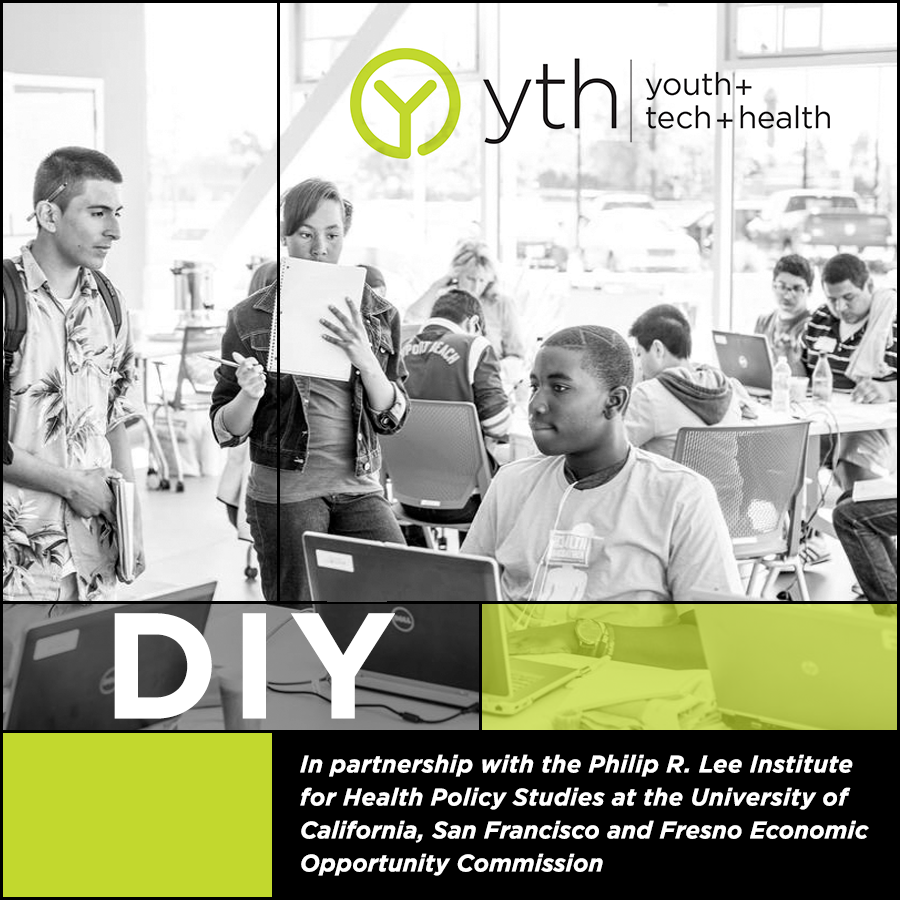 YTH, in collaboration with UCSF Bixby Center and the Fresno Economics Opportunities Center, was awarded a PREIS grant to design and evaluate a unique intervention with youth in Fresno, CA. The intervention specifically focuses on the needs of and outreach to: homeless and unstably housed youth, youth of color, LGBTQ youth, and Native American youth, age 13-19 in Fresno County, CA. The Digital Initiative for Youth (DIY) is built on three strategies: positive youth development, youth-centered health design, and wraparound technologies. Content experts and designers will directly implement youth-centered health design methodology with target populations developing prototypes that support existing curricula focusing on four main areas: sexual health and contraceptive use, healthy relationships, educational and career development, and general life skills. Through a robust evaluation process, we intend to demonstrate the effectiveness of the intervention and make it available for other organizations to replicate.
YTH, in collaboration with UCSF Bixby Center and the Fresno Economics Opportunities Center, was awarded a PREIS grant to design and evaluate a unique intervention with youth in Fresno, CA. The intervention specifically focuses on the needs of and outreach to: homeless and unstably housed youth, youth of color, LGBTQ youth, and Native American youth, age 13-19 in Fresno County, CA. The Digital Initiative for Youth (DIY) is built on three strategies: positive youth development, youth-centered health design, and wraparound technologies. Content experts and designers will directly implement youth-centered health design methodology with target populations developing prototypes that support existing curricula focusing on four main areas: sexual health and contraceptive use, healthy relationships, educational and career development, and general life skills. Through a robust evaluation process, we intend to demonstrate the effectiveness of the intervention and make it available for other organizations to replicate.
LEAD
YTH Live 2016
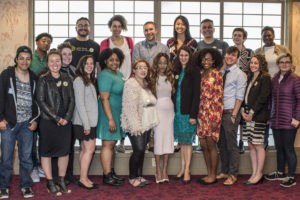 Every year, we gather together the brightest minds in youth, tech, and health innovation at our annual conference, YTH Live, named one of the best nonprofit conferences by EveryAction. We welcomed activist and actress Morgan Saylor, Instagram’s Brand Development Manager Kristen Carlson, Planned Parenthood’s Managing Director Kristen Tilley, and many other innovative change makers. YTH Live 2017 is planned for May 7-9, at Bespoke in San Francisco. Register now for this year’s conference and complete your trip with hotel discounts.
Every year, we gather together the brightest minds in youth, tech, and health innovation at our annual conference, YTH Live, named one of the best nonprofit conferences by EveryAction. We welcomed activist and actress Morgan Saylor, Instagram’s Brand Development Manager Kristen Carlson, Planned Parenthood’s Managing Director Kristen Tilley, and many other innovative change makers. YTH Live 2017 is planned for May 7-9, at Bespoke in San Francisco. Register now for this year’s conference and complete your trip with hotel discounts.
Youth Advisory Board
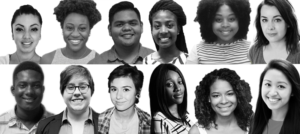 We welcomed four new members to our Youth Advisory Board in 2016. These talented, passionate, and diverse young leaders are involved in projects for youth health around the country, and they influence the development, scope, and design of our projects. This year, the board provided guidance and feedback on our new projects, as well as contributing their stories and experiences on YTH’s blog. See what they have to say about youth health in 2017.
We welcomed four new members to our Youth Advisory Board in 2016. These talented, passionate, and diverse young leaders are involved in projects for youth health around the country, and they influence the development, scope, and design of our projects. This year, the board provided guidance and feedback on our new projects, as well as contributing their stories and experiences on YTH’s blog. See what they have to say about youth health in 2017.
mCHAPIN, Guatemala
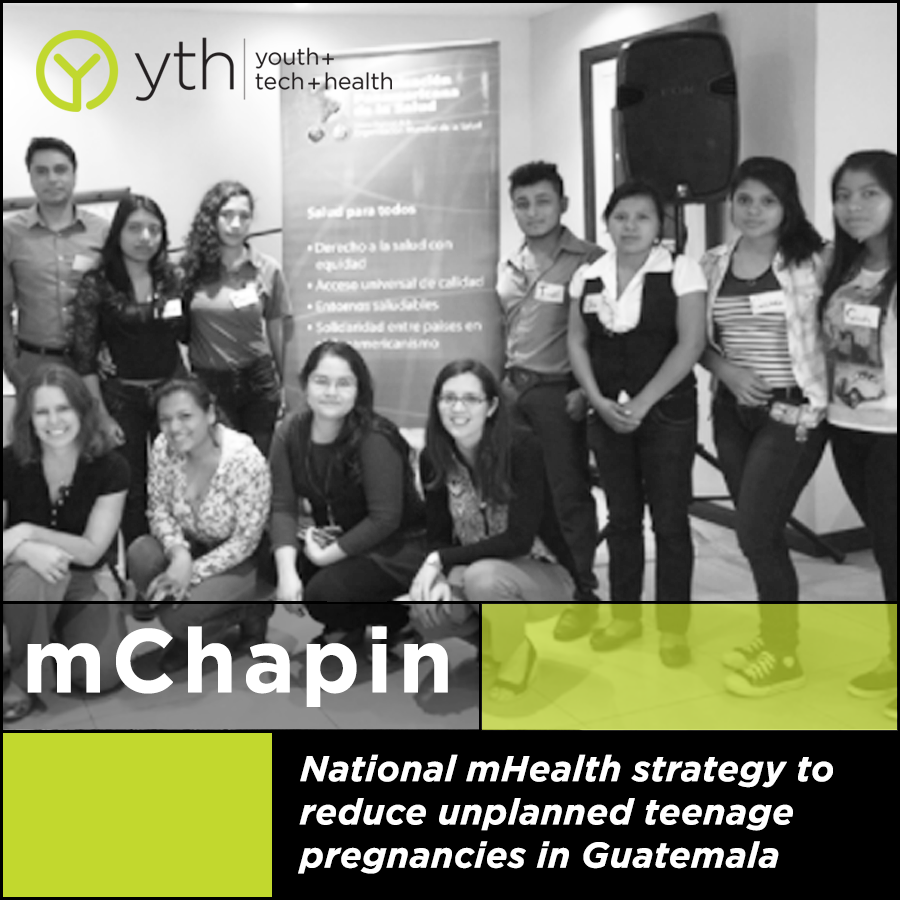 Employing YTH’s youth-centered community consultative process, we worked closely with our GoJoven PHI and PAHO partners to conduct a country level assessment and community consultations with youth, Ministries of Education and Health, as well as local providers to draft a national mHealth strategy to reduce unplanned teenage pregnancies in Guatemala. Currently, the strategy is being reviewed for approval by PAHO Guatemala and the Ministry of Health for adoption and implementation.
Employing YTH’s youth-centered community consultative process, we worked closely with our GoJoven PHI and PAHO partners to conduct a country level assessment and community consultations with youth, Ministries of Education and Health, as well as local providers to draft a national mHealth strategy to reduce unplanned teenage pregnancies in Guatemala. Currently, the strategy is being reviewed for approval by PAHO Guatemala and the Ministry of Health for adoption and implementation.
New Partners
2016 was a year where we continued to strengthen our relationships with existing funders and partners while identifying new collaborators to continue pioneering innovations for youth health and wellness. We launched new initiatives with support from Gilead Sciences, The David and Lucile Packard Foundation, Westwind Foundation, Family and Youth Services Bureau (FYSB) and The Bill and Melinda Gates Foundation. We also started new working relationships with YLabs, Engender Health, Rise Up, CalPEP, COMISCA, and many other groups making a difference in the lives of young people around the world.
Thank you
Your support for our work in 2016 was vital, and we’re excited to keep serving youth across the globe, by creating innovative technology to address youth-health with your continued support on our projects as we move into 2017.
Follow us on Facebook | Instagram | Twitter
Previous Post
In Honor of Roe V. Wade: Pro-Choice Promotion for Youth